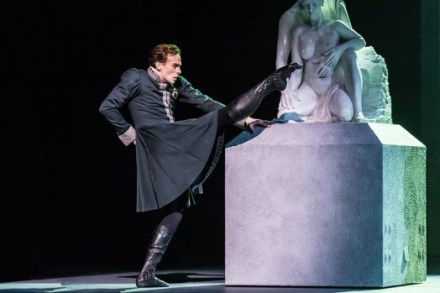To a Turkish president
There was a young fellow from Ankara Who was a terrific wankera Till he sowed his wild oats With the help of a goat But he didn’t even stop to thankera. *Extempore limerick in conversation with Nicholas Farrell and Urs Gehriger for the Swiss newspaper Die Weltwoche. On the grounds of its spontaneity, it has been judged the winner of The Spectator’s President Erdogan Offensive Poetry Competition


















